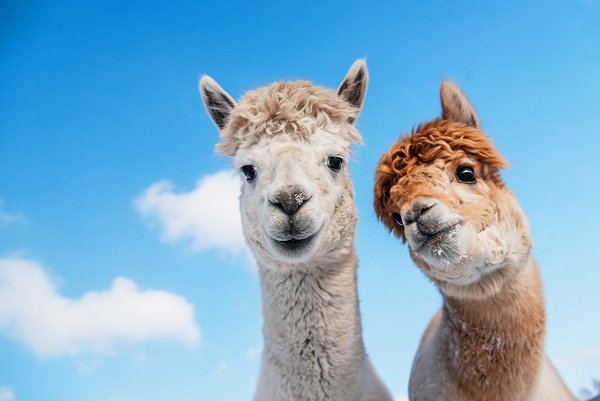 Read this article in French
Read this article in French- Share this article
- Subscribe to our newsletter
International Year of Camelids
2024 is the International Year of Camelids. Launched by the Food and Agriculture Organization of the United Nations (FAO) it aims to recognise and celebrate the vital contributions these animals make to livelihoods, food security and nutrition.
Camelids, including Bactrian camels, dromedary camels and wild camels, as well as South American camelids such as domesticated llamas and alpacas, and wild vicuñas and guanacos, play a pivotal role in diverse ecosystems. They are particularly important in desert and mountain regions, where they form an integral part of the livelihoods and traditional practices of indigenous communities.
“Even in the most extreme climatic conditions, they produce milk, meat, fibre and organic fertilizer, and provide transport, boosting food security, nutrition and livelihoods while helping to conserve fragile ecosystems. Camelids also build resilience to the impacts of the climate crisis – particularly in mountains and drylands – and can contribute to the transformation of agrifood systems,” said FAO Director-General Qu Dongyu, underscoring the cultural and environmental importance of camelids.
Camelids, vital for millions of households in over 90 countries, originated in America 45 million years ago. Serving as working animals, they support Indigenous Peoples and local communities in South America's Andean highlands, as well as in the deserts of Africa and Asia. Bactrian camels and dromedaries, for example, known as "ships of the desert," are crucial for nomadic life in drylands.
The International Year was proposed by the Government of the Plurinational State of Bolivia and approved by the UN General Assembly in 2017. The Andean nation, along with the Kingdom of Saudi Arabia, will play a key role in its implementation.
The goal of this Year is to promote a better understanding of the intrinsic value of camelids and their potential in helping to address the challenges posed by the climate crisis, particularly in regions where they are found. Greater support to the camelid sector can accelerate progress towards achieving the Sustainable Development Goals (SDGs), especially the ones related to Zero Hunger, the eradication of extreme poverty, the empowerment of women, the sustainable use of terrestrial ecosystems and the conservation of fragile environments.
In addition to recognising the economic, social and cultural importance of camelids, the Year will encourage governments and stakeholders to invest more in the camelid sector. This includes programmes and projects to bolster sustainable livelihoods everywhere.
(FAO/ile)
More information:
Read more on the FAO
Visit the Website of the International Year of Camelids





Add a comment
Comments :
Greetings.
Thank you for your information.
I am Dr.M.Senapathy working as an Associate Professor, at the Department of Rural Development and Agricultural Extension, College of Agriculture, Wolata Sodo University, Ethiopia, East Africa.
I would like to be one of the Editorial Board Members for the Journal "The International Journal of Rural Development"
As I am an Editor and Reviewer of many Scopus Indexed Journals, I am looking for Editorial Board Members in your esteemed Journal.
Looking forward to hearing your reply.
Regards
Senapathy
Ethiopia